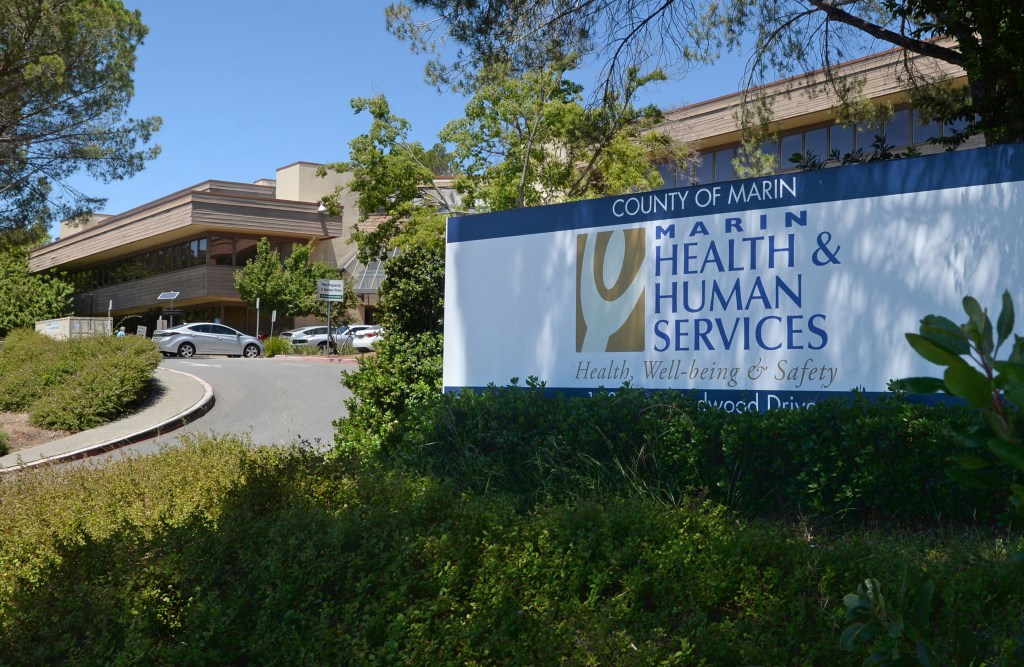Marin's elderly residents have become increasingly concerned about financial security and financial crime over the past four years, according to a county survey.
The survey, which involved 412 residents in November and December, was commissioned by the Marin County Health and Human Services Department.
County supervisors were briefed on the findings Tuesday when approving the county Area Agency on Aging's plan for 2024-28. Area Agencies on Aging (AAAs) are public or private nonprofit organizations designated by states to address the needs and concerns of older adults at the regional and local level.
Federal and state laws require local Area Agencies on Aging to develop plans every four years. Marin's supervisor serves as Marin's board of directors for her AAA.
“We typically receive approximately $2 million in funding each year from the federal Older Adults Act,” Jenee Cottrell, Marin AAA program manager, told supervisors. “Since the pandemic began, we have received approximately $3 million more in COVID-19 relief funds, the last of which expires in September 2024.”
The survey, conducted by Davis Research LLC, found that 29% of respondents were concerned about financial security. In a 2019 survey of Marin seniors, only 13% of respondents cited financial security as a concern.
“Financial security has seen the biggest increase,” Cottrell said.
The second biggest change compared to the previous survey was the number of respondents citing concerns about financial crime, economic abuse and fraud. His 26% of respondents cited this category as a concern, compared to 13% in 2019.
Cottrell said concerns about crime were even higher among African-American seniors, at 51%. African American residents make up 1.5% of Marin's elderly population.
Davis Research oversampled Blacks, Asians, Latinos, and rural older adults to increase confidence in the findings for these groups. Latinos make up 6% of Marin's elderly population, and that number is projected to reach 12% over the next 10 years.
However, the top concern in the survey was climate change. 64% cited it as a concern, an increase of 6% from 2019.
Second place was “Costs for home care and living support,'' a new item that was not included in the 2019 survey. His 41% of respondents cited it as a concern.
Cottrell said the needs assessment also revealed increased feelings of depression and a desire for socialization among Marin seniors.
During the public comment period, Front Porch Community Services Strategic Director Luke Barnes-Moore said homelessness has become a serious problem for seniors. Barnes-Moore, who serves on the county's Homeless Policy and Steering Committee, said 48 percent of the nation's homeless population are over the age of 50, and 41 percent became homeless after age 50.
“People who used to be stably housed, stably employed, and contributing to their communities are now becoming homeless because the cost of living is rising faster than Social Security and disability benefits,” Barnesmoor said. he said. “For example, here in Marin, between 2019 and 2021, the number of first-time homeless adults aged 50 and older increased by 10%.”
The Area Agency on Aging plan for 2024-28, which regulators approved on Tuesday, includes four goals. Increase awareness of and access to services and resources, with special attention to Black and Latino populations. Partnering with community organizations to address financial security. and increasing opportunities for social engagement.
There was no mention in the discussion of elevating Marin County Aging and Adult Services (AAS) to the departmental level within the Department of Health and Human Services.
This was a recommendation made by Githens & Associates, a consultant the county paid $125,000 to create an integrated aging services study. Study results were submitted to county supervisors in February 2023.
The report released last May by the Marin County Civil Grand Jury is titled “The Wave of Seniors Coming – Is Marin Ready?” repeated the recommendation. The report noted that even though more than 30% of Marin's population is over the age of 60, AAS's budget was only 2.3% of last year's $236 million Department of Health and Human Services budget.
A grand jury said in April that county supervisors decided not to increase the AAS because doing so would “create a scenario in which social services funding would be unable to support existing payroll costs.” . The county estimates the measure will increase annual costs by $700,000 to $1 million.
Lee Pullen, the county's director of senior and adult services, resigned in March. Mr. Pullen is currently the Director of Aging and Adult Services for San Mateo County. Pullen could not be reached for comment.
San Mateo Deputy Health Director Mark Mulman wrote in an email: We cannot comment on the budget implications associated with other counties' organizational structures or how Aging and Adult Services (AAS) is structured within their organizations. ”
“I think that was the same week that I started working here in the county,” said Lisa Warhouse, the new director of the Marin County Health and Human Services Department, regarding Pullen's retirement on March 22.
Walfs said he has been discussing the issue of increasing the AAS with the county's Commission on Aging behind the scenes. Walfs met with committee members on March 29, but committee chair Lee Notwich said afterwards that funding issues remained unclear.
Broadly speaking, Warhus said, “Creating a department on par with other departments will require some new positions and will also involve tearing down social services funding on which we depend.” It will happen,” he said.


